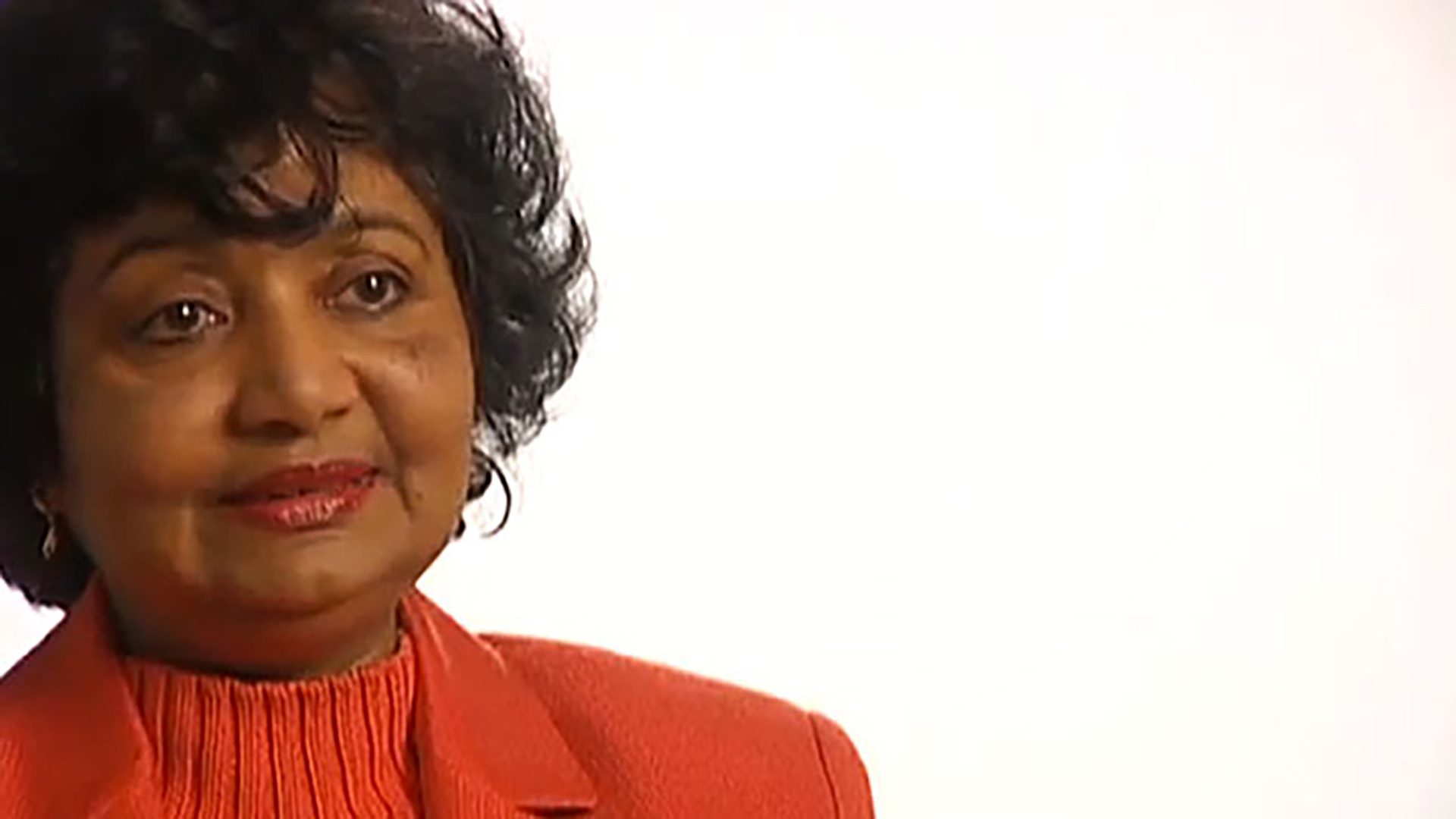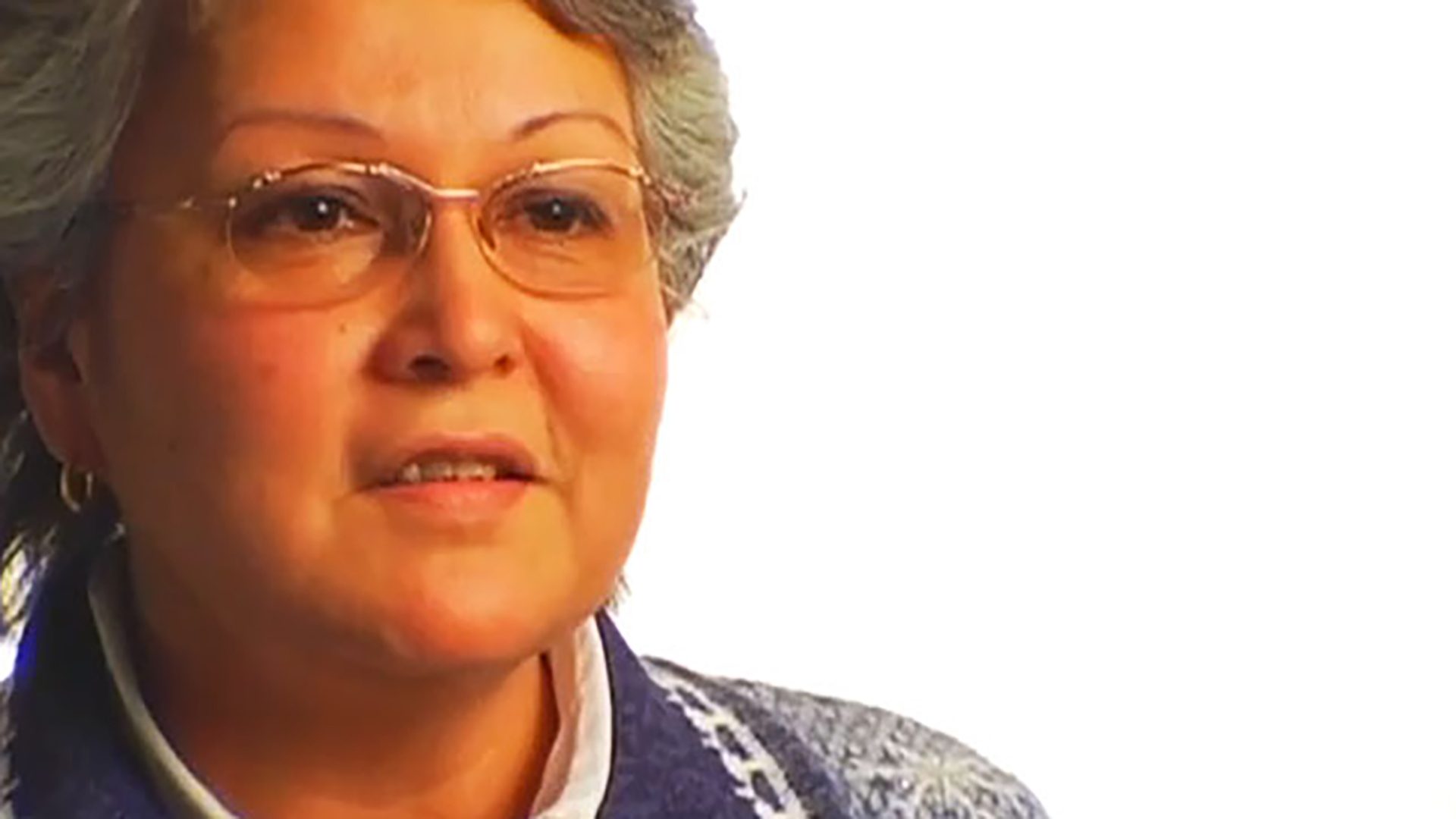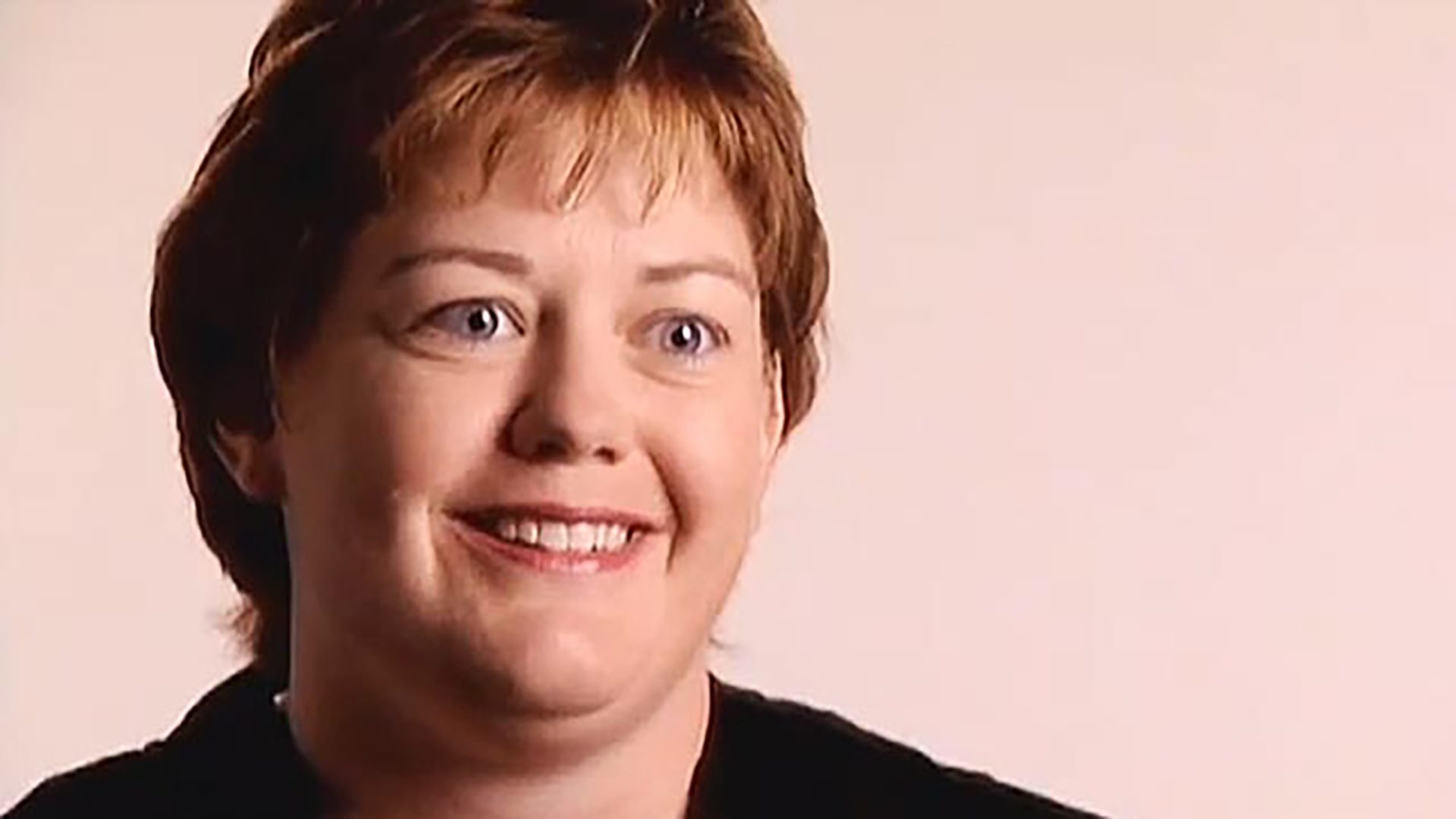Survivor Interview – Jina P.
Jina is a breast cancer survivor. She talks about aftereffects of radiation, how she stays involved in the cancer community, and meeting other survivors.

I became a survivor on March 10 of 1993, when I was diagnosed with breast cancer.
I had been going for mammograms every year after I became 40 years old, but I felt it myself at the self-breast examination. My doctor took a biopsy that day, and it was malignant. I didn’t have any idea what this breast cancer was all about at that time. I was really ignorant about cancers. The next morning, I went to the hospital. That afternoon, they did a lumpectomy surgery on me. Then they decided I should have some radiation because I did not have a mastectomy. So two weeks later, I had an underarm surgery to see that my lymph nodes were clear.
I had six weeks of radiation every day. They were discussing whether I should have another two weeks of that implantation type of radiation. I refused to do that. I only took three months of chemotherapy treatment. By that time, my hair was losing, my fingernails were getting black, so those two areas I know cells were dead. I didn’t feel bad, but my mouth didn’t have any tasting feelings. I thought, “The first two months this happened, what it will be another eight times?” If I had any cancer cells, they must have died, too. They wanted me to sign a paper saying that I refused to take the treatment, and here I am. I’m ten years later. I’m still alive. I’m happy.
As soon as I finished with my chemotherapy treatments, I went back home to Sri Lanka, and I went through six months of alternative treatment. You don’t go to the doctor in my country and just tell him, “Here, I have breast cancer. Treat me.” You’re supposed to go through a process of letting him tell you what type of sickness you have. I’m supposed to do a little bit rituals. He’s like a psychic. He told me I don’t have a sickness. Am I going to get treatment now without a sickness? He said, “No.”
Then I told him what I went through. He was a little bit upset why I went through chemo and radiation. I said I didn’t have any choice, that’s all I knew, and I’m not going to have a cancer in my body and letting it spread.
What he did was to get my immune system up and hold my last breath in my body as long as he could, all with plant-based medicine. Some other things, though, were from the dolphin, which sent out from his body something like a ball that was very, very light. According to this doctor, there is some type of life force in there. He uses that, as well as he used the inside of deer’s horns. That is why that particular treatment was very expensive.
I’m sure there were many, many people in our countries, in my communities, died of all sorts of cancers. They didn’t want to talk about the cancer. It’s not a word in India. People in my culture think that having cancer is a curse. It’s like if you are a bad person, you will get cancer, because you have a death sentence attached to cancer. If a family member gets cancer, no one wants to get married to their children because the cancer was in their family. They think cancer is something contagious. In fact, there were some people who used to say, “My wife also got cancer because the people with cancer hugged her every time.” In their minds, I’m going to be dead pretty soon. I can see the fear in their minds and the sadness. So I thought, “No, I am going back to America.”
I went to the American Cancer Society, and I told them, “I want to be a volunteer.” First day, they are having this program for the uninsured and underinsured women who have mammograms at the American Cancer Society office. While I was doing that, I saw there was a guy with that mammogram unit who looked like someone from my part of the country. Because I was wearing the Indian outfit, he came to me and he said, “Since you are volunteering, can I ask you to participate? Because you are the first woman I saw coming after breast cancer and helping people like this. Our community, too many women have breast cancer, but they don’t want to talk about it. Would you mind?” I said, “No.”
When I started doing that, I thought I would have to go and speak, so that I can just go and tell in front of all these people that, “Hey, I have cancer. But I am still alive. If you want to be alive also, you just have to know about this, not to keep inside of you, so that you can spread the word around.” I have had many, many meetings, conferences, mostly Asian Pacific Islander (API) communities. Then I joined the Board of Directors of South Asian Network because I’m a Sri Lankan. I don’t know whether they would consider me as an Asian, but I haven’t seen anyone like me in those API meetings anyplace. I even went and got the Department of Defense to assign me to breast cancer research. I was a consumer advocate. I read all these research papers and sat down with them and devote to the research for three years. I did a lot of focus groups throughout the country for Susan G. Komen Foundation and also for the South Asian Network. Every place I have been for focus groups, I have noticed there were no South Asians involved at all. So far, I’m the only one who speaks out and who speaks publicly and also tell everyone I have cancer.
I just got another organization set up for the South Asian Cancer Organization. What we want to do is to help the patients once they become patients. We want to have the survivors’ luncheon pretty soon. That’s going to be our first thing. That’s the way we can get all these survivors coming up and getting together, so that they know each other. I had a media campaign, and I had my picture with another two ladies after talking to them so much. They came forward with me just for the pictures to put in the papers as the survivors.
I have fibromyalgia. My bones, my back, my whole body from head to toes, it’s not the body I had before. I was going to the gym five days a week about five years, and I was having a good lifestyle. I eat healthy, and I take all the vitamins. I think that’s why I’m alive today. Of course, I had stress, but I was meditating for the last 18 years.
Now I’m in pain and I can’t do anything myself. I am on disability. I cannot work, but I still continue working for the community, 100% volunteer. Doctors don’t know what’s going on in me. I believe this is not the cancer. I believe the treatment I got must have really affected me. When you get radiation into your body, of course, radiation is killing your cancer, but we know the radiation is what creates cancer. I don’t know what happened to my radiation in my body. So I have to detoxify myself as much as I can. I can’t imagine if I took any more chemo what could have happened.
My doctor’s still denying the fact that what I have is because of treatments or cancer. I’ve met with hundreds of research conferences. I’ve read research papers in my work. They are all asking themselves why these things are happening. Some doctors even got up in front of the audience and said, “My patients came after cancer, chemo, and radiation. Now they have this, this, this problems.” I got up and I said, “Doctor, I’m so happy to hear that you tell in front of all these people this could be the aftereffects, from all this chemo and radiation for breast cancer people.”
I know some women who did not have any chemo, radiation, and they had mastectomies. They don’t have any physical conditions; except they don’t have a breast. I’m having everything, but I am physically not well. I took Tamoxifen about three or four months, and the chemo only three instead of eight. I took six weeks of radiation instead of eight. At that time, I didn’t know anything about Tamoxifen. I didn’t know anything about chemotherapy. I didn’t know anything about radiation. I just wanted to live. If someone said, “Okay, this is a poison, and you will live, you are not going to die,” I would have taken it.
My name is Jina Peiris. I’m a ten-year breast cancer survivor.

